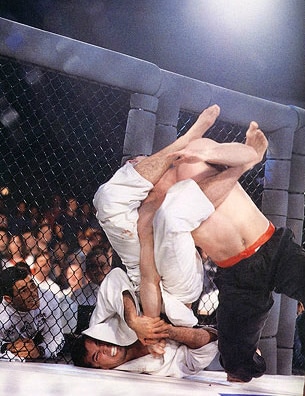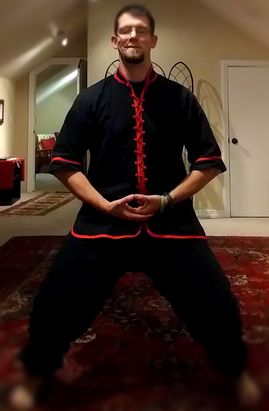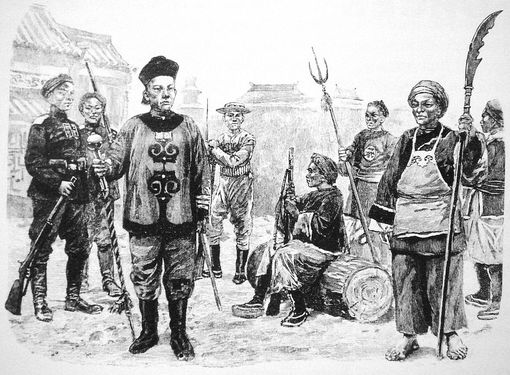 After having seen a certain martial art demo have you heard someone say or have you said this before? "That will never work... in the 'cage'/ on the 'street'/ in UFC/ against a boxer or mixed martial artist!" If you have I'd say you're/they're probably right. The problem with that statement is the UFC or 'the cage' isn't the be all end all testing ground for martial art. When it comes to martial effectiveness I'd say 'the cage' or the UFC is one of, if not the best place, to pressure test your technique in a 1 on 1 all inclusive environment. The more broad problem is that 'martial effectiveness' isn't the only goal in 'traditional' techniques, styles, exercises, or forms. My purpose in writing this post is to help you refocus how you look at traditional martial arts, and martial art practice in general. The focus when looking at martial arts, especially traditional ones, should be on asking "Does the art build a certain skill, attribute or does it have some other cultural or social relevance?" Various martial arts focus on different aspects of these. Boxing, JiuJitsu, and Mui Thai even fall into these categories. In particular we're looking at skills such as musculoskeletal development, cardiovascular and other forms of fitness, whole body coordination, efficient strength, posture, and rehabilitation of injuries and many more. After seeking the reasoning we then have to ask ourselves is this something we could find appealing? It all boils down to critical thinking. In this post we'll offer some references and knowledge to find reasons behind traditional practices and my personal reasons for continued practice of traditional martial arts. After reading this I hope you can make a more well informed opinion of traditional and modern practices. =) Muddy waters of history!Looking back in time is never an easy task, regardless of the culture you're researching. In Martial Art culture it is more difficult still. I wrote about this difficulty in the past by outlining problems with traditional chinese martial art history here (IMPACT of Martial History) Instead of going down that rabbit hole again today I want to share some good links you can reference for further exploration. - Wiki martial art timeline - Evolution of sports martial arts - Karate's Sacred Tome - Black Belt Magazine's Martial Art history - Research of Martial Arts by Jonathan Bluestein When looking at the current state of martial arts it's very important to note all eastern arts came from a traditional background and were specialized into much of what we see today. Mainly this specialization has been from an all inclusive traditional view into a specific concentration on one or a few things. Traditional martial arts were/are all inclusive in the sense that originally they were there to teach character development, social service, personal discipline, martial history, skill development, and martial application using solo and partner drills. This would finally turn into free form application, live sparing and other types of skill testing for self defense. At a broad view many martial arts have deviated from their traditional roots mainly in the pursuit of sport. Most 'modern' martial arts keep their traditional roots intact, although focus primarily on one aspect due to "sportifying" themselves to be more culturally relevant and hit a more modern 'fan base'. Here's some examples. - Modern Tae Kwon Do is basically an updated version of Tae Kwon Do that focuses on kicking for sport and acrobatic breaking demonstrations. - Modern Wushu is basically traditional Kung Fu that focuses on gymnastic form practice and choreographed filmed or live demonstrations. - Judo is basically traditional Ju Jutsu relegated to mainly throwing techniques. - Brazilian Jiu Jitsu is basically Japanese JuJutsu that has been specialized to the groundwork of grappling and locking. - Mixed Martial Arts is an mixture of various systems and styles of martial arts (usually boxing, mui thai, brazilian jiu jitsu, and wrestling) with the sole purpose of seeking the most effective martial application inside or outside of the related combat sport. By categorizing or describing them in this way is to illustrate the natural progression and specialization. All of these arts excel greatly at what they do and are lethal in various aspects of self defense. My point is that "sportifying" is very much a natural progression and isn't necessarily a negative thing. With the rising of more sophisticated weaponry, i.e. GUNS, arts of hand to hand combat haven't held as pivotal a role in the realm of self defense as they have in the past. Likewise with the rise of more civilized societies and social structures self defense as a whole has been strongly delegated to the likes of law enforcement, security, military personnel and at times mercenaries. Keeping this in mind the question then becomes why train in martial arts at all, if not for a certain sportlike attribute? What are my reasons for training traditional martial arts??? I ask myself this question at the beginning of every month. Usually it's the same reasons, sometimes I find more. My reasons for practicing Tai Chi Chuan and Kwan Ying Do Kung Fu is that it has always been a way for me to reset my body and mind. It's brought me comfort in the worst times of my life and continues to help me grow as a person in different ways. On top of these reasons physically it changes as I change and I find new discoveries in the techniques/forms every time I practice them. Traditional martial arts are a great way to train that brings better health and grows into a constant form of self development. Simply the deeper you dive in the practice the more that it unlocks in you. If it's the same form you've been training for years, the skills and development grows as you do. More so than this, traditional formwork is a training method where you don't need anything or anyone else to make improvement. Once you have the foundational principles and pay close attention the alignments and coordination develop to heal every part of your body and mind with every session. Without getting into specifics traditional martial arts train every aspect of you from the inside out. There are exercises for mind, body, and spirit if you want to dive into the spiritual history of the art you're training in. From Japanese Zen and Shinto in Karate, Aikido, JuJutsu or Ninjutsu, to the Chinese view of Tao in Tai Chi or Cha'an in Shaolin Kung Fu. From Filipino meditations to Mui Thai spiritual dances before combat, you can find spirituality in any practice... or not, IT'S NOT REQUIRED. If you don't like confrontation you can focus on the 'softer side' pursuing health and fitness, If you enjoy competition focus on the 'harder side' of conditioning and self defense drills. You can develop power in various ways through many methods with or without equipment. There's a martial art out there that trains it. What I like most about martial arts is you can train anywhere, in anyway, with anyone, however, and in whatever way you want and progress infinitely on your own or with a partner if you so choose. The depth is endless. The only limitation is your desire to practice and discover yourself. In time, regardless of practice, you'll find mindfulness and endless potential! Keep training and enjoy the fruit of your practice!
0 Comments
Leave a Reply. |
Your AuthorDaniel R. Hyde
Licensed Massage Therapist OIF, OEF Veteran U.S. Marine Corps Instructor of: Kwan Ying Do Kung Fu Tai Chi Chuan Chi Kung Tui Na, Chinese Massage Thai Massage Shiatsu, Japanese Massage Archives
May 2021
Categories |



 RSS Feed
RSS Feed
